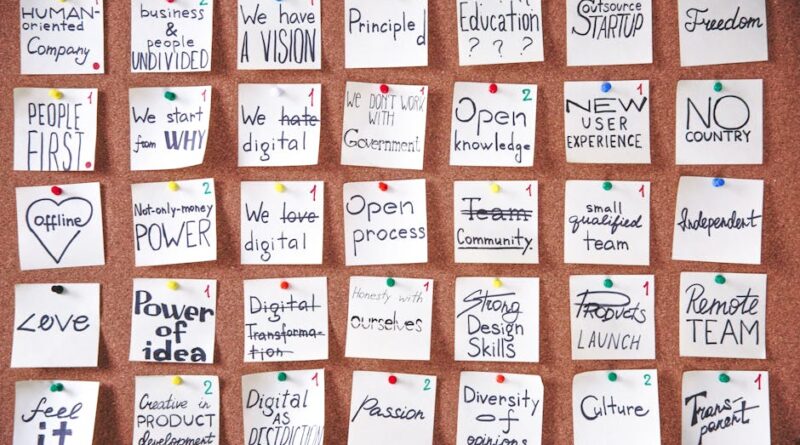Leadership Strategies for Enhancing Productivity
Did you know that effective leadership can boost a team’s productivity by up to 25%? Studies show that strong leaders not only inspire their teams but also help them perform better. In today’s fast-paced world, enhancing productivity is more important than ever. But how can leaders achieve this? Lets dive into some practical strategies.
What Makes a Good Leader?

Good leaders have a clear vision. They know where they want to go and can guide their teams there. But it’s not just about having a plan. A great leader also listens and engages with their team. They create an environment where everyone feels valued and motivated.
Leadership isn’t a one-size-fits-all approach. Different situations call for different styles. For instance, sometimes a hands-on approach works best, while at other times, giving more autonomy is key. Effective leaders adapt their style to meet their team’s needs.
How Can Leaders Improve Communication?

Clear communication is the backbone of productivity. Without it, tasks can easily fall through the cracks. Here are some ways leaders can enhance communication:
- Be Transparent: Share information openly. When everyone knows the bigger picture, they can align their efforts.
- Encourage Feedback: Create a culture where team members feel safe to share their thoughts. This can lead to innovative ideas.
- Use Simple Language: Avoid jargon. Speak in terms everyone understands to prevent confusion.
By improving communication, leaders can reduce misunderstandings and foster collaboration. This ultimately drives productivity.
What Role Does Trust Play in Leadership?

Trust is a crucial part of any team. When team members trust their leader, they’re more likely to take risks and share ideas. Heres how leaders can build trust:
- Be Reliable: Follow through on promises. If you say you’ll do something, make sure you do it.
- Show Empathy: Understand your team’s feelings and challenges. A little empathy goes a long way.
- Be Honest: Transparency builds trust. Share both the good and the bad news.
When trust is established, productivity naturally increases. Team members feel more comfortable collaborating and sharing creative solutions.
How Does Setting Clear Goals Impact Productivity?

Goals provide direction. When team members know what they need to achieve, they can focus their efforts. Leaders should ensure that goals are SMART:
- Specific: Clear and well-defined.
- Measurable: You should be able to track progress.
- Achievable: Goals should be realistic.
- Relevant: Goals need to align with broader team objectives.
- Time-bound: Set deadlines to maintain momentum.
For example, instead of saying, “Improve sales,” a SMART goal would be, “Increase sales by 10% over the next quarter.” This clarity helps everyone stay on track.
What Are Some Effective Delegation Techniques?
Delegation is crucial for productivity. It allows leaders to focus on higher-level tasks while empowering team members. Heres how to delegate effectively:
- Know Your Team: Understand each team member’s strengths and weaknesses. Assign tasks accordingly.
- Be Clear: Clearly outline what you expect. Provide resources and support.
- Trust Your Team: Give them the freedom to complete tasks their way.
When team members feel trusted and empowered, they are more engaged and productive. This leads to a more dynamic work environment.
Why Is Continuous Learning Important for Teams?
In todays world, staying relevant is key. Continuous learning keeps teams sharp and innovative. Heres how leaders can encourage this:
- Provide Training: Offer workshops and courses to help skill development.
- Encourage Sharing: Foster a culture where team members share knowledge and insights.
- Lead by Example: Show your commitment to learning. Attend courses and share what you learn.
When learning is part of the culture, teams feel more empowered. They can adapt to changes and improve productivity.
How Does Recognition Impact Team Morale?
Everyone likes to feel appreciated. Recognition boosts morale and motivates teams. Heres how leaders can show appreciation:
- Celebrate Successes: Acknowledge both big wins and small victories.
- Provide Constructive Feedback: Help team members grow while recognizing their strengths.
- Personal Touch: A simple thank you or note can go a long way.
When team members feel valued, they are more likely to go the extra mile. This can lead to increased productivity and satisfaction.
What Are the Benefits of Flexibility in Leadership?
Flexibility can lead to higher productivity. Leaders who adapt to changing circumstances create a dynamic environment. Here are some benefits:
- Improved Work-life Balance: Flexible hours can lead to happier employees.
- Enhanced Creativity: An adaptable environment fosters innovative thinking.
- Better Problem Solving: Flexibility allows teams to respond quickly to challenges.
For example, during a project crunch, allowing remote work may ease stress and increase output. Flexibility shows you trust your team and care about their wellbeing.
Conclusion: What Are Your Next Steps?
Effective leadership plays a significant role in enhancing productivity. By improving communication, building trust, setting clear goals, and fostering a culture of learning, leaders can create a thriving environment. Remember to recognize your teams efforts and stay flexible to adapt to changes.
Take these strategies and put them into action. Observe the positive shifts in your team’s productivity and morale. Leadership is about guiding others to success. Your team will thank you for it!
For more insights on leadership, check out our post on different leadership styles.



